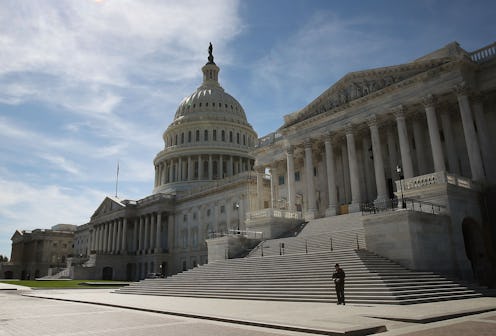News
How The Senate Could Pick The Vice President
A lot of esoteric rules and scenarios have come up in this wild election, from Rule 40B to the possibility of the Republican Party replacing Donald Trump as its nominee. Another such possibility for a left-field election result is hidden in the 12th Amendment, which stipulates the regular and irregular procedures for electing the president and vice president. Under highly unusual circumstances, the Legislative Branch could actually choose the next vice president. Could the Senate pick the vice president? It's possible, but highly unlikely.
The 12th Amendment has rarely been used outside its typical application. In almost all cases, the election proceeds as follows: People vote for a slate of electors, which has been chosen by the presidential and vice presidential candidates of each party. Those electors almost always vote for the candidates that chose them for their ballot, but aren't required to in every state. Those electors send their votes to the president of the Senate, which is the sitting vice president (currently Joe Biden). Before all of Congress, the vice president counts and records all the votes, and whoever wins the most votes are the new president and vice president.
However, there is a very specific circumstance under which the Senate could choose the vice president. Two vice presidential candidates would have to be in an exact tie, with no candidate earning a simple majority of electors. Then, the Senate would have to vote in a candidate by a two-thirds majority to choose the next vice president. This scenario is very improbable, considering the high number of electors, which significantly lessens the likelihood of a tie. In fact, the Senate has only used this power once, in the election of 1836. Martin Van Buren had already been elected president, but the vice presidency fell to a four-way tie. Andrew Johnson, a senator at the time, was elected vice president by a vote of 33 to 16, and went on to break more ties within the Senate than any other vice president.
Leaving the vice presidency up to the Senate may not seem like a particularly democratic solution to the problem, but the United States is a representative democracy, not a pure one. It's one of the reasons voting in Senate and House elections is so important — there are numerous little things within the Constitution that give the Legislative Branch a lot of power. Although it's extremely rare and very unlikely, even in this wacky election year, the Senate tiebreaker is an important part of the American democratic process.
